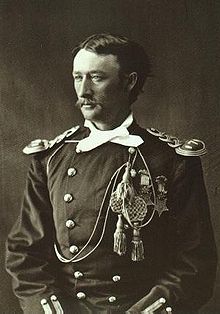Civil War Quiz: What Do You Know About These Civil War Authors and Historians?
Q#1 – Who was the American historian, noted for his writing on the American Civil War, who was widely acclaimed for his book on The Origins of the Republican Party, 1852-1856, which is still considered one of the most important books ever written on 19th-century American politics?
Q#2 – Who was the author who, in 1988, published his Pulitzer-winning book Battle Cry of Freedom?
Q#3 – This famous Civil War author and historian was inspired by his planter grandfather, who had died two years before his birth. Who was he?
Q#4 – After the publication of Captain Sam Grant (1950) by historian and biographer Lloyd Lewis, who wrote the second and third volumes of this trilogy?
Q#5 – Who is this author who has long been considered a leading authority on the Reconstruction Era of American history as evidenced by his seminal essay in American Heritage in October 1982?
Q#6 – The founding executive director of the Virginia Center for Civil War Studies research and education center is also considered the preeminent scholar on Confederate Lieutenant General Thomas J. “Stonewall” Jackson. Who is he?
Q#7 – What well renowned Civil War historian made this profound quote: “I don’t want to call it a conspiracy to ignore the role of the Blacks, both above and below the Mason-Dixon Line, but it was definitely a tendency that began around 1910”?
Q#8 – This famous author and Civil War historian won the 2005 Lincoln Prize (for the best book about the American Civil War) for her 2005 book about Abraham Lincoln’s presidential cabinet. Part of the book was adapted by Tony Kushner into the screenplay for Steven Spielberg’s 2012 film Lincoln. Who is she?
Q#9 – Who is the Bay Area author who wrote Brady’s Civil War Journal: Photographing the War, 1861-65?
Q#10 – This famous Civil War author’s initial interest in the history of the Civil War first began after an eighth grade school field trip to the Gettysburg battlefield. Who is he?
Q#11 – Who is this now deceased famous Civil War author and historian who is attributed to this quote: “The point I would make is that the novelist and the historian are seeking the same thing: the truth – not a different truth: the same truth – only they reach it, or try to reach it, by different routes?
Q#12 – This famous Civil War historian was named Chief Historian of the National Park Service, a position he held until 1994. From 1994 to 1995, he served as special assistant to the director. After his retirement in 1995, he received the title Chief Historian Emeritus, which he holds to this day. What is his name?
Q#13 – Civil War Times (formerly Civil War Times Illustrated) is a history magazine published bi-monthly that covers the American Civil War. It was established in 1962 by whom?
Q#14 – Who is this American documentarian known for his style of using archival footage and photographs in his films?
Q#15 – Which Civil War historian served for nine years as co-chairman of the United States Abraham Lincoln Bicentennial Commission, appointed to the commission by President Bill Clinton in 2000, and elected co-chair by his fellow commissioners?

